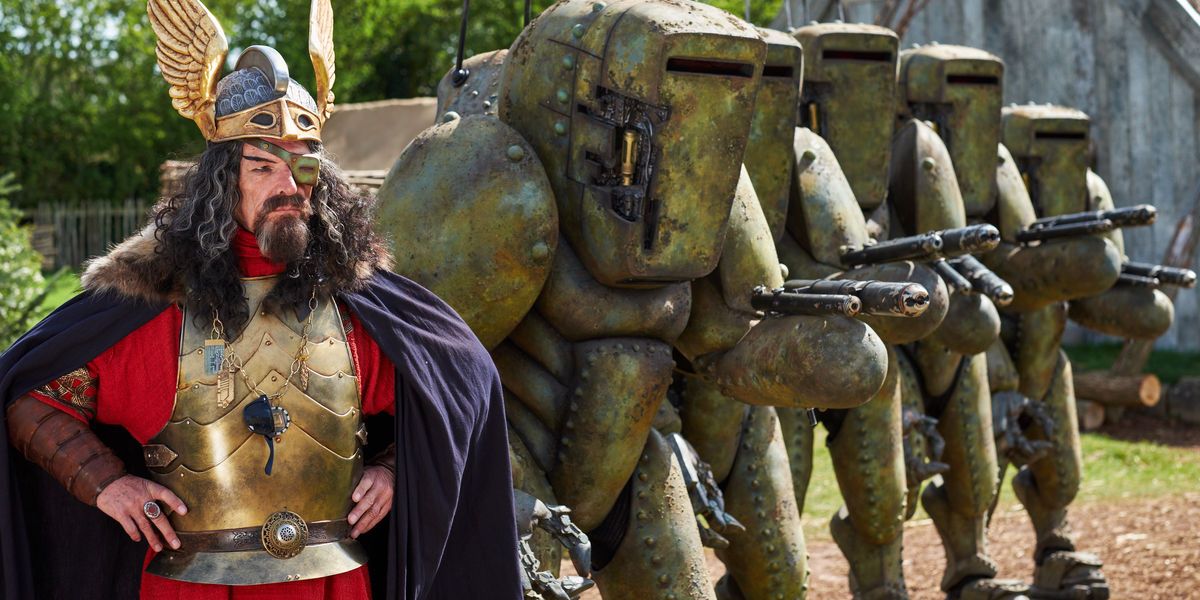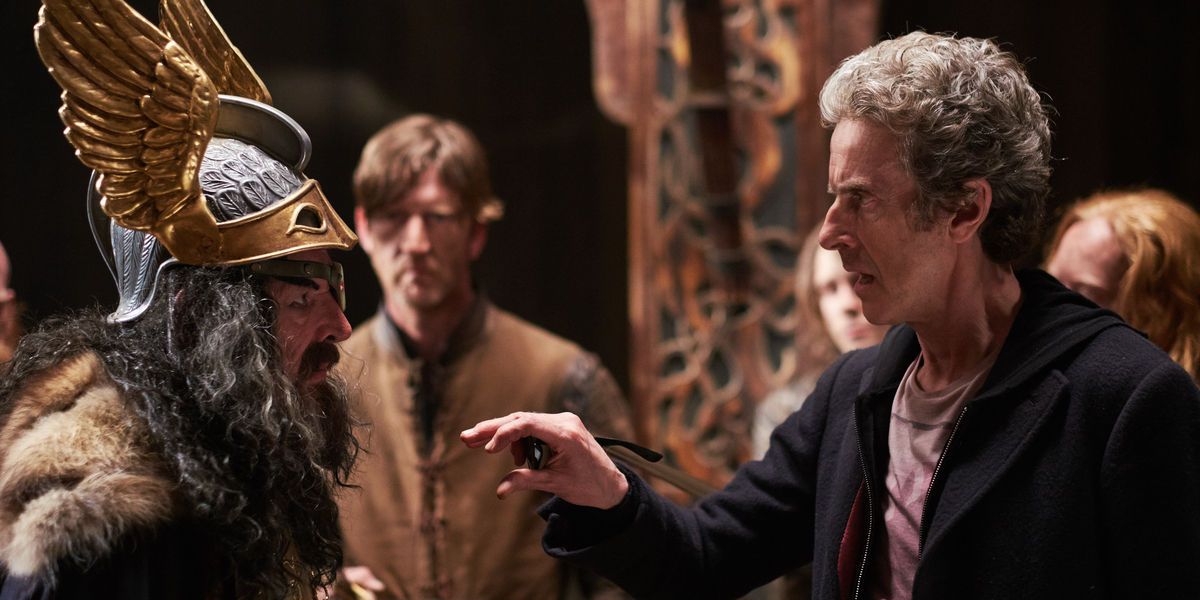[This is a review of Doctor Who season 9, episode 5. There will be SPOILERS.]
-
Throughout much of season 9, Doctor Who has been concerned with the ramifications of the Doctor's tinkering with time and getting involved in the lives of the people he encounters. From the season premiere on, nearly every episode has, in some way, touched upon weighing the lives of one against the lives of many. Time and time again, it has come back to what the Doctor can and can't do as a Time Lord, as well as a sometimes-cold pragmatism in which one life can be lost in order to ensure many remain safe. That was made clear during last week's 'Before the Flood,' in which the Doctor was seen "allowing" the death of one person in order to prove a theory that would ultimately save many.
This all fits into the stripped-down but still complicated depiction of the Doctor by Peter Capaldi. He is (or has been) "darker" and emotionally remote at times, and as a result has perhaps felt more like the alien he is rather than the man the character has come to be regarded as. What is interesting is how Capaldi-Who's characteristics and tendency towards big-picture rationality has colored his companion this season as well. Clara is not immune to the Doctor's way of thinking; she sees how he always has a plan and how things generally work out in their favor. As such, she has begun to adopt the "many outweigh the few" ethos that has driven so many of the Time Lord's decisions over the past few episodes.
What 'The Girl Who Died' does, then, is take the Doctor's seemingly infallible decision-making skills and suggest maybe things don't go the way they should have. One of the things that can be unfulfilling about Doctor Who is the sense that there's little in the way of consequence or that the pace with which an episode's conflict is resolved is often too hurried. When stories deal with time travel and things like Sonic Sunglasses and characters who always have a plan, there can be an underwhelming sense of lightness to them all. There is no problem the Doctor can't eventually figure a way out of. For the most part, that's fine. That is who the Doctor is. But there are elements, even to his plans, that don't work out the way they're supposed to, and that is where the truly interesting portion of this wee's story resides. Whereas last week O'Donnell's death could be considered a part of his overall strategy, this week, however, the death of Maisie Williams' Ashildre most certainly was not.
What makes the episode interesting isn't that the Doctor figures out a way to snatch a young girl from death's icy hands. Rather it is the larger, unseen consequence of him doing so and, possibly more intriguing, the reason behind the Doctor's action – i.e., anger and sadness. In other words, this remote Doctor made a decision based primarily on his emotional response, and it may not have been the right one to make. But it was certainly an interesting one, as we see when a revolving shot of Ashildre shows time passing without her having aged a day. Really, though, it doesn't matter whether the Doctor was wrong or right (although it makes him more interesting if he were wrong). Instead, what matters is the Doctor made a decision based not on some pragmatic sense of the greater good, but of his own personal desire. And from that comes not only the pleasure of exploring the consequence of the Doctor's action, but also the ramifications of having allowed his emotions to dictate the choice he made.
'The Girl Who Died' is comprised largely of an inconsequential plot involving a Viking village being attacked by aliens called the Mire. The narrative is mostly given to humor, as the aliens' whole deal is to harvest warriors, turning their aggressiveness and testosterone into a tasty beverage. And part of the harvesting process is appearing in the sky above the village, as a floating head in the guise of Odin – which is made all the more hilarious by its resemblance to the sun baby from Teletubbies.
And yet, Stephen Moffat and co-writer Jamie Mathieson manage to walk the fine line between humor and seriousness by having the clearly not battle-ready Vikings train to take on Not Odin and the rest of the technologically advanced Mire. The jokes make great use of one particular time jump that keeps the pace of the narrative moving swiftly, while also underlining just how dire the situation is. But given how the episode also deliberately underlines its own historically inaccurate depiction of Vikings in general, it guides the audience to pay attention to only the two most interesting moving parts of the story: the Doctor and Ashildre.
There is also an undercurrent of pride running through much of the episode. It is an element that colors the Mire's ultimate defeat at the hands of several unarmed men and a large wooden puppet. It also informs on the Vikings' desire to die with honor and even the Doctor's fateful decision to revive Ashildre, and in doing so, sentence her to a never-ending life. That hint of pride makes the Vikings and the aliens predictable in a way that services the overall needs of the story. But it also brings the Doctor into territory that hasn't been explored with Capaldi yet. There is interest in seeing him be imperfect for reasons that go beyond the long game and instead service the character's immediate emotional needs in the here and now.
More than that, the episode doesn't end so much on a cliffhanger, but the promise of more. More time with Ashildre, but in a different time when the consequences of the Doctor's actions will be made more clear and, hopefully, so too will his understanding of why he made them.
-
Doctor Who continues next Saturday with 'The Woman who Lived' @9pm on BBC America. Check out a preview below:
Photos: BBC Worldwide Limited



